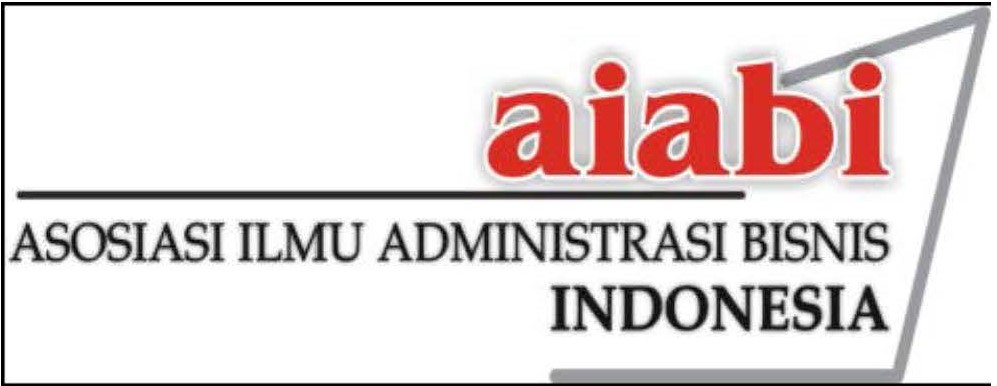PENGARUH ENTREPRENEURSHIP EDUCATION TERHADAP FINANCIAL LITERACY PADA SISWA SMA AL AZIZ ISLAMIC BOARDING SCHOOL (SCHOOL OF LEADERS AND ENTREPRENEURS)
Abstrak
This study aims to determine the effect of entrepreneurship education on financial literacy in Al Aziz Islamic Boarding School (School of Leaders and Entrepreneurs) high school students. As an entrepreneurship-based school, SMA Al Aziz Islamic Boarding School (School Of Leader and Entrepreneur) . Entrepreneurship education is carrying out entrepreneurial behavior, or several elements that influence these intentions, such as entrepreneurial knowledge, desire for entrepreneurial activities, or feasibility. Educational institutions can build basic entrepreneurial skills to foster entrepreneurial intentions and financial literacy, which is a special form of knowledge about finances for students at Al Aziz Islamic Boarding School (School Of Leader and Entrepreneur). The research method used is the quantitative method used by distributing questionnaires involving 51 students of SMA Al Aziz Islamic Boarding School. Sampling is done by probability sampling. The data obtained were processed to be tested for the effect of the measured variables. Data analysis using simple regression analysis.. Based on the results of the study, it shows that there is a significant positive effect of the entrepreneurship education variable on financial literacy.
Penelitian ini bertujuan untuk mengetahui pengaruh entrepreneurship education terhadap financial literacy pada siswa SMA Al Aziz Islamic Boarding School (School of Leaders and Entrepreneurs). Sebagai sekolah berbasis kewirausahaa, SMA Al Aziz Islamic Boarding School (School Of Leader and Entrepreneur). Entrepreneurship education yakni melakukan perilaku kewirausahaan, atau beberapa unsur yang mempengaruhi niat tersebut, seperti pengetahuan kewirausahaan, keinginan dari kegiatan kewirausahaan, atau kelayakannya. Lembaga pendidikan dapat membangun keterampilan dasar kewirausahaan untuk menumbuhkan niat berwirausaha dan Financial literacy yakni bentuk khusus dari pengetahuan tentang keuangan para siswa di SMA Al Aziz Islamic Boarding School (School Of Leader and Entrepreneur). Metode penelitian yang dilakukan yakni metode kuantitatif digunakan melalui penyebaran kuesioner yang melibatkan 51 siswa SMA Al Aziz Islamic Boarding School. Pengambilan sampel dilakukan secara probability sampling. Data yang diperoleh diolah untuk diuji pengaruh antara variabel yang diukur. Analisis data menggunakan analisis regresi sederhana. Berdasarkan hasil penelitian menunjukkan terdapat pengaruh positif secara signifikan variabel entrepreneurship education terhadap financial literacy.
Kata Kunci
Teks Lengkap:
PDFReferensi
Aji, S. P., Mulyadi, H., & Widjajanta, B. (2018). KETERAMPILAN WIRAUSAHA UNTUK KEBERHASILAN USAHA. Journal of Business Management Education (JBME), 3(3). https://doi.org/10.17509/jbme.v3i3.14315
Bae, T. J., Qian, S., Miao, C., & Fiet, J. O. (2014). The Relationship Between Entrepreneurship Education and Entrepreneurial Intentions: A Meta-Analytic Review. Entrepreneurship: Theory and Practice, 38(2). https://doi.org/10.1111/etap.12095
Brotman, B. A., Mehr, R. I., Cammack, E., & Rose, T. (1987). Principles of Insurance. The Journal of Risk and Insurance, 54(1). https://doi.org/10.2307/252894
CHEN, H. (1998). An analysis of personal financial literacy among college students. Financial Services Review, 7(2). https://doi.org/10.1016/s1057-0810(99)80006-7
Dahmen, P., & Rodríguez, E. (2014). Financial Literacy and the Success of Small Businesses: An Observation from a Small Business Development Center. Numeracy, 7(1). https://doi.org/10.5038/1936-4660.7.1.3
Garman, E. T., & Forgue, R. E. (2010). PERSONAL FINANCE. In Journal of Chemical Information and Modeling (Vol. 53).
Honig, B. (2004). Entrepreneurship Education: Toward a Model of Contingency-Based Business Planning. Academy of Management Learning & Education, 3(3). https://doi.org/10.5465/amle.2004.14242112
Hung, A., Parker, A. M., & Yoong, J. (2011). Defining and Measuring Financial Literacy. SSRN Electronic Journal. https://doi.org/10.2139/ssrn.1498674
Lackeus, M. (2015). Entrepreneurship in Education: What, Why, When, How. In OECD.
Liñán, F. (2004). Intention-based models of entrepreneurship education. Piccola Impresa / Small Business, 2004(3).
Nunnally. (1967). Nunnally on Reliability. Psychometric Theory, 2nd editio.
Schumpeter, J. A. (2019). Joseph Alois Schumpeter: Entrepreneurship, Style and Vision. In Kemampuan Koneksi Matematis (Tinjauan Terhadap Pendekatan Pembelajaran Savi) (Vol. 53).
Stumpf, S. A., Brief, A. P., & Hartman, K. (1987). Self-efficacy expectations and coping with career-related events. Journal of Vocational Behavior, 31(1). https://doi.org/10.1016/0001-8791(87)90037-6
Sugiyono, P. D. metode penelitian kuantitatif, kualitatif,dan R&D. , Alfabeta, cv. (2016).
Suparno, & Saptono, A. (2018). Entrepreneurship education and its influence on financial literacy and entrepreneurship skills in college. Journal of Entrepreneurship Education, 21(4).
Zhao, H., Hills, G. E., & Seibert, S. E. (2005). The mediating role of self-efficacy in the development of entrepreneurial intentions. Journal of Applied Psychology, 90(6). https://doi.org/10.1037/0021-9010.90.6.1265
DOI: https://doi.org/10.24198/adbispreneur.v6i3.34803
Refbacks
- Saat ini tidak ada refbacks.









